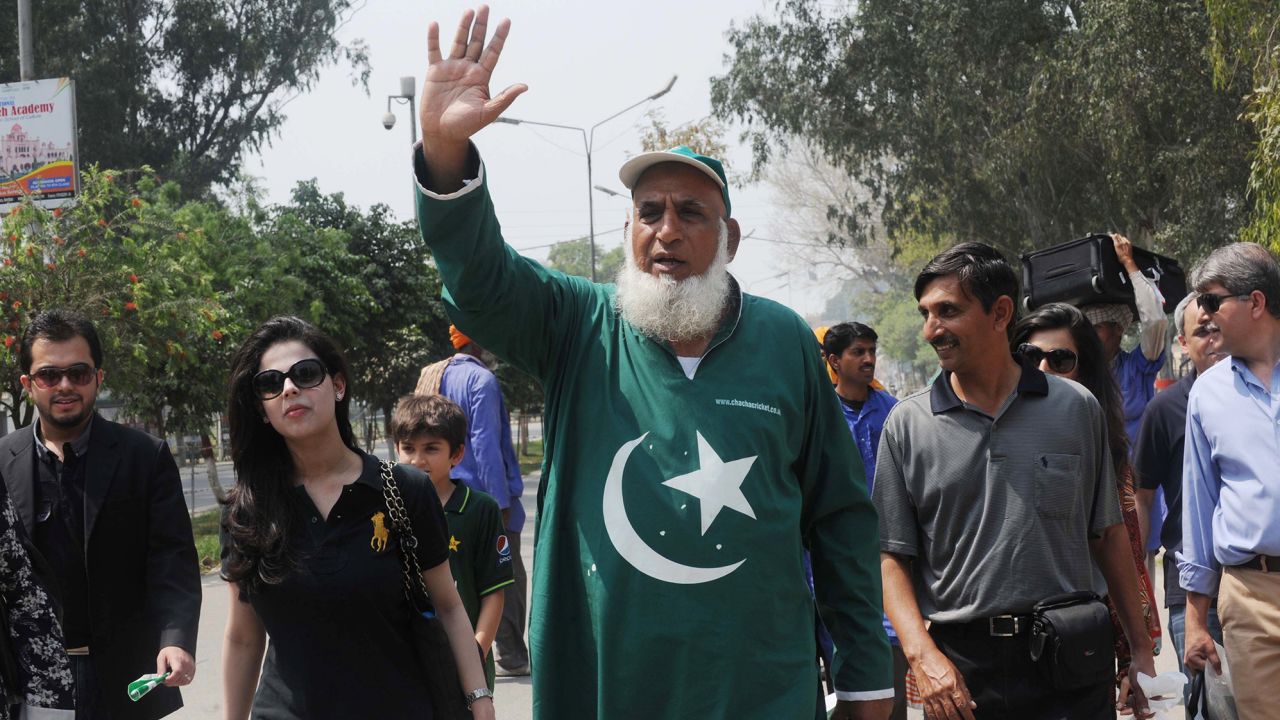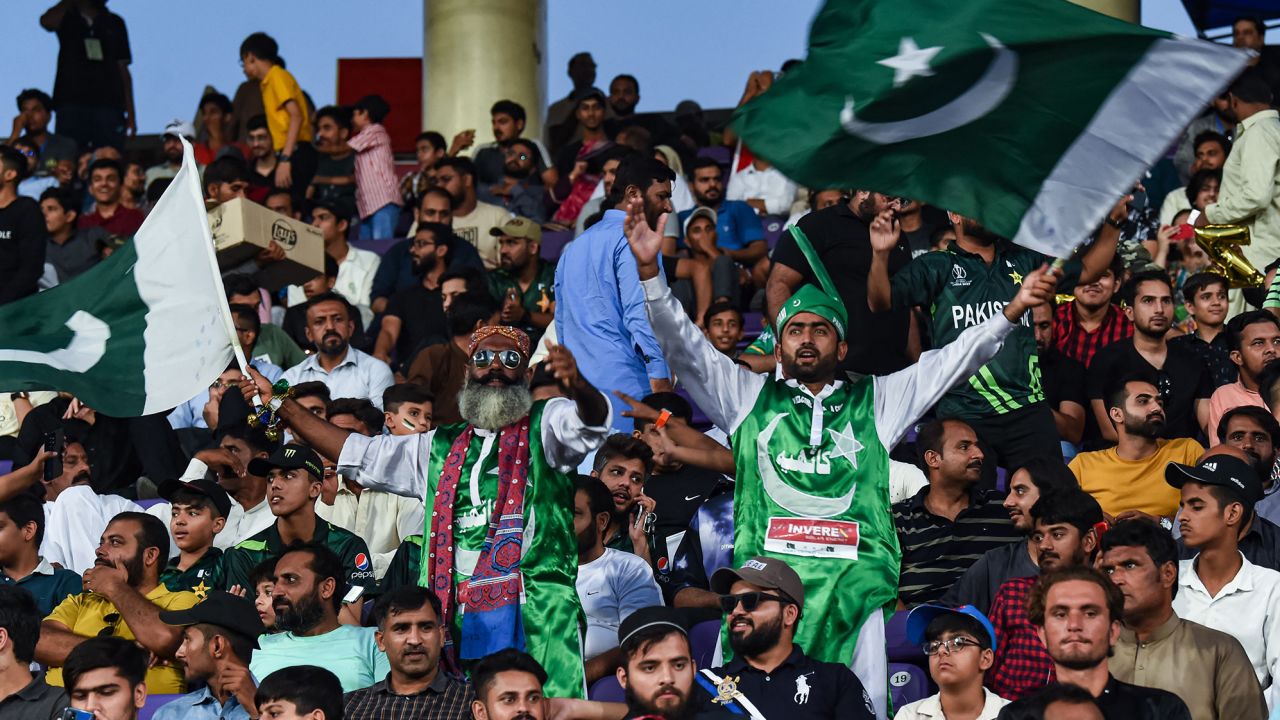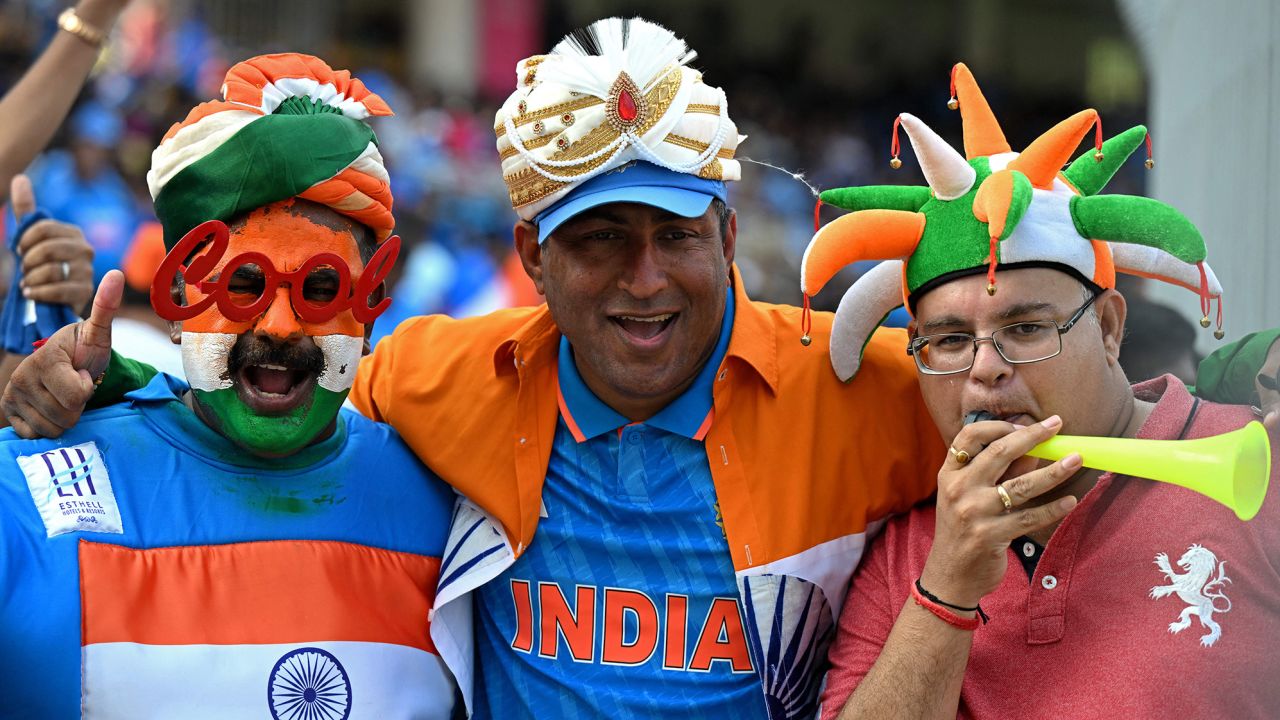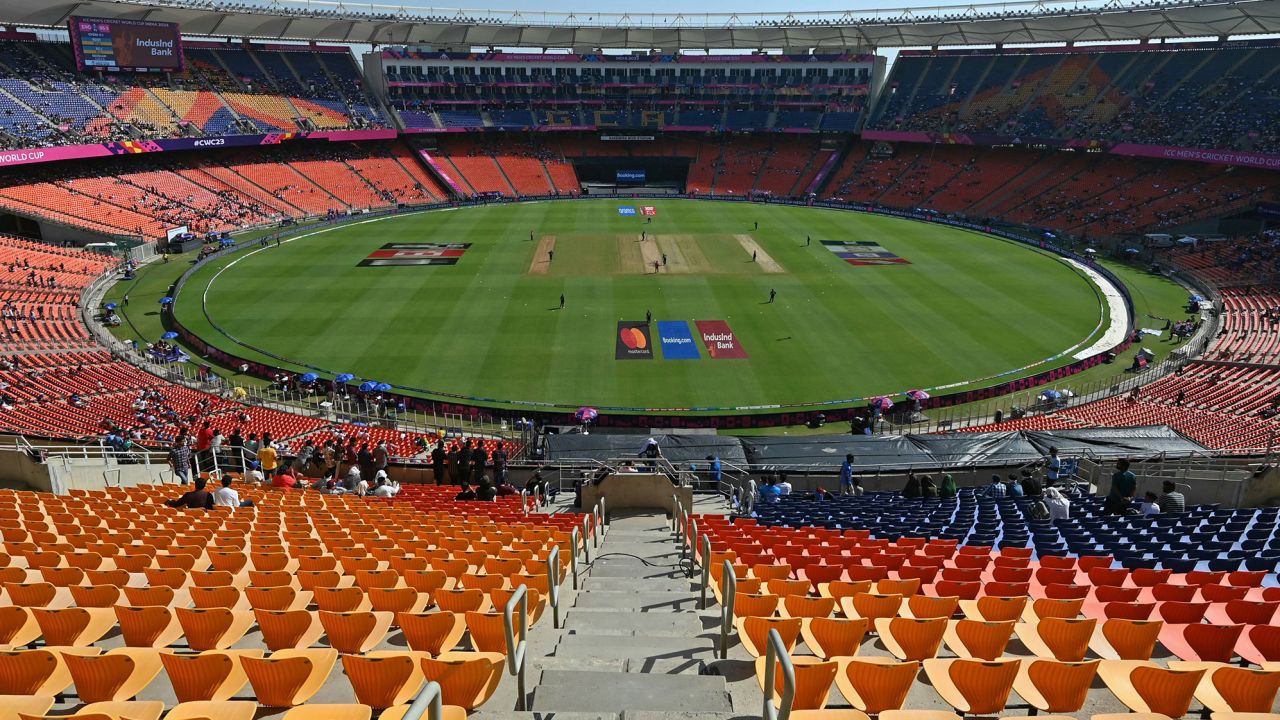New Delhi and Islamabad
CNN
—
In October 1952, five years after the Indian subcontinent won independence from its British colonial rulers, a young Pakistan cricket team stepped foot in the newly formed Republic of India.
They had arrived to play a highly anticipated test series – the first for Pakistan after the country’s creation in 1947.
For many of the players, the drive from Lahore in the Muslim-majority nation of Pakistan, to Amritsar in Hindu-majority India, brought back painful memories of a bloody partition – one that hastily divided the former colony along religious lines with devastating results and gave rise to a fierce geopolitical rivalry.
In the 76 years since, India and Pakistan have fought three wars and introduced heavy restrictions on exchanges of goods or civilians, despite the two countries sharing a border, a culture and a deeply intertwined history.
And among that shared culture is a near universal love of cricket.
Pakistan has not toured India since 2016. But on Saturday, for the first time in seven years, these two rivals will play each other on Indian soil in the opening stages of Cricket World Cup, which India is hosting.
That game, said Farees Shah, host of the Shiny Side Cricket Podcast, could have “easily half a billion people” watching.
“This is five times the super bowl,” he said. “There are few rivalries that compare.”
Often described as one of the greatest sporting grudge matches in the world, an India-Pakistan cricket match is always bound up in the geopolitical faultlines that separate the two nations.
Yet the game, a legacy of British colonial rule, has also shown it has the ability to be something bigger, something greater than making runs and taking wickets.
It has the ability to unite – not divide – the more than 1.6 billion people who live spread across the subcontinent.
As Pakistan’s cricket team arrived in India’s southern city of Hyderabad last month, they were met with rapturous applause from Indians waiting at the airport for the star players. Then when Pakistan created World Cup history this week, pulling off the highest successful run chase against Sri Lanka, Indians in the stands cheered with joy and excitement.
And when Pakistan’s cricket captain, Babar Azam, gifted his country’s jersey to a ground worker at one of the stadiums, it was hailed by an Indian newspaper as a “terrific gesture.”
Speaking to reporters before the World Cup began last month, Azam spoke of his excitement at being in the country.
“I think the way people are responding towards our team, it is not like we are in India,” he said with a smile. “It is like we are home.”
Yet, while camaraderie has played out on the pitch, conspicuously missing in the stands are Pakistani fans, for whom it is incredibly difficult to travel into India due to red tape and historical mistrust that restricts the movement of citizens between the countries.
Even the Pakistan cricket team were only able to obtain visas at the eleventh hour, after complaints of a delay in the process which the Pakistan Cricket Board said disrupted the team’s preparation for the event.
CNN has contacted India’s Sports Ministry and the Home Ministry but is yet to receive a response.
Abdul Jalil, a mascot for Pakistan’s cricket team known as Chacha Cricket (Uncle Cricket) said he has been attending matches for 54 years and had wanted to visit India for this one too but did not know how to go about applying for a visa.

“The Indian government hasn’t given any process on how to give a visa, no idea on how to get a visa. There’s no explanation for visas,” he said.
“I want to make it my mission to spread peace,” he added. “I have fans in all of the main Indian cities where people ask me to stay in their homes. I am a guest of Hindus, Sikhs and Muslims. If you spread love then you will get love.”
Hadeel Obaid, the founder of KheloKricket, a platform seeking to develop, promote and celebrate cricket at a grassroots level, said she had been to previous World Cups and would “love” to go to India for this game too.
“There’s something electric in the air. It doesn’t matter who you support as a cricket fan, you can appreciate good cricket,” she said.
“But one of the major reasons I didn’t apply is because I didn’t think I would get permits to go. The whole process seemed a little daunting.”
Even so, she said the respect the two teams have for each other “is pretty incredible.” She added: “The messaging that is out there is impactful, despite the political atmosphere.”


Fans in India have responded with similar excitement.
Avro Mukerji from Gurgaon, a city just outside capital New Delhi, said the game has “a special significance” for him as he has been avidly following this rivalry since 1992, when the Pakistan team, led by cricket legend turned former prime minister Imran Khan, clinched World Cup victory.
“There are few memorable moments across the years which as a fan will cherish forever,” he said.
“Ajay Jadeja thrashing Waqar Younis, Venkatesh Prasad getting the better of Amir Sohail after a verbal spat, Sachin’s performance in a run chase against Pakistan… it’s a mix of excitement and nervous energy for the fans.”
For Divya Bhatnagar, also from Gurgaon, the game is “more than just a match.”
She added: “An India/Pakistan match is about the country uniting for a sport. It actually reinforces our identity as Indians, where religion, politics, and economy don’t matter and don’t define us. It’s solely the sport and the spirit of winning ‘together’.”
Much of the tension between India and Pakistan is linked to a decades-long conflict in Kashmir – a vast, largely mountainous region between the two nuclear-armed nations, that both claim in its entirety.
The region has been bitterly contested by India and Pakistan since partition and New Delhi accuses Islamabad of supporting militant groups there. The festering issue has spurred three wars between the countries.
In more recent years games have taken place on neutral ground, in a third country such as Sri Lanka or the UAE, to prevent tensions between fans from simmering over.
“I think the turning point was 2004, when India toured Pakistan and beat them convincingly,” said Vaibhav Vats, a New Delhi based cricket writer.
“That’s when the confidence and self-image of both teams began undergoing a shift. That shift is part of contrasting national trajectories: India sees itself as a rising power in the world, while in Pakistan the feeling is of stagnation and decline.”
Since Prime Minister Narendra Modi and his Hindu-nationalist Bharatiya Janata Party (BJP) rose to power nearly a decade ago, India has has grown increasingly important on the world stage. It has been repeatedly courted by Western leaders, who see the nation as a key partner in the Indo-Pacific region.

India overtook China to become the most populous country earlier this year, with its 1.4 billion strong – and largely young – population seen as an avenue for further growth and innovation.
Pakistan has, by contrast, had a more troubled decade, plagued by political instability, militants attacks and, more recently economic chaos and deadly floods, upending the lives of tens of thousands in the country of 230 million.
Yet, as India grows on the world stage, Modi and his BJP have come under increasing scrutiny for what rights groups say is a crackdown on minorities – in particular some 170 million Muslims – in the world’s largest democracy.
“This game will be taking place in a significantly charged climate,” said Vats, citing what he said was increased religious intolerance during Modi’s rule.
And in a move that isn’t without irony, the Pakistani cricket team play against India on Saturday at the world’s largest cricket stadium – named after Prime Minister Modi – in his home state of Gujarat, .
“That this is happening in what is now the world’s largest stadium… it’s symbolic of a new India,” said podcast host Shah. “Pakistan playing there is India showing its power.”
CNN has reached out to the BJP but is yet to receive a response.
This makes Saturday’s match one of the most anticipated of the year.
TV screens will be lit up in homes across both countries, in remote villages and in coffee shops, restaurants and clubs, as millions tune in for the game.
While India and Pakistan have, over the decades, worked hard to shed the image of a subject of their erstwhile colonial rulers, one thing is clear: the game of cricket is no longer viewed as a gentleman’s sport inherited from the British.
The national teams of both countries are viewed as symbols of the future – of a modern and vibrant subcontinent that appears to be moving forward.
“The World Cup is the one with the history and the legacy, it’s the one you want to win,” Shah said.
Vats, the New Delhi journalist, said the political situation “does not affect” the teams.
“They get along extremely well,” he said. “There is no hostility in the dressing rooms.”